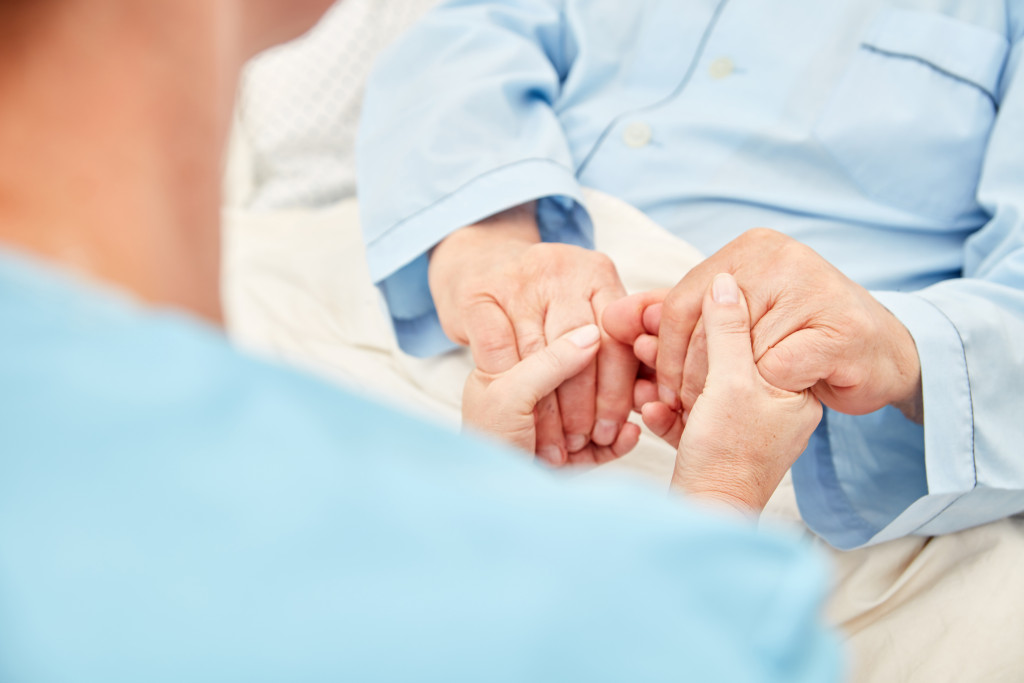Aging is a process that affects all parts of the body. As people age, they have a higher risk of health problems such as cancers, stroke, heart disease, and infection. Common issues faced by senior citizens include pain, osteoporosis, sleep disturbances, and chronic conditions such as arthritis.
In addition to the more common medical concerns shared by seniors, there are many conditions that are specific to older adults. For example, seniors are more likely to have cataracts, diabetes, or Alzheimer’s disease.
Here are some health concerns affecting seniors:
1. Arthritis
As people age, they become more susceptible to inflammation of the joints, which is called arthritis or degenerative joint disease. Arthritis can cause pain and stiffness in the joints, especially in the hands, feet, shoulders, and hips. The most common types of arthritis are osteoarthritis and rheumatoid arthritis.
2. Osteoporosis
This is a common bone disease in which bones gradually thin and become brittle, increasing fracture risk. According to the National Institutes of Health, more than 25 million Americans are affected by osteoporosis. This condition often causes pain in the back, hips, or thighs after a minor fall.
3. Cancer
It’s not unusual to hear about a person in their 80s or 90s with cancer and other serious health problems, and most people assume these conditions result from old age. In fact, the opposite is true. The majority of cancers arise from risk factors that have been present since birth, such as exposure to ultraviolet radiation from the sun or from certain chemicals.
In addition, some common cancer types are caused by lifestyle choices that only become evident as people age, such as smoking-related lung cancer and drink-related liver disease.
4. Alzheimer’s Disease

Many people fear Alzheimer’s disease, a form of dementia affecting memory and other mental abilities, but most cases of Alzheimer’s occur after age 60. A person is more likely to develop the disease if there’s a family history of Alzheimer’s, according to the National Institutes of Health (NIH).
5. Sleep Disturbances
Many seniors experience sleep disturbances that may be related to medical conditions, medications, or other factors. These can include difficulty falling asleep or staying asleep, restlessness during sleep, and waking up early in the morning.
6. Mobility Issues
As people age, they naturally experience some decline in motor skills. Loss of balance is one reason for this, along with changes to the senses contributing to clumsiness. Other factors include arthritis and osteoporosis, which affect bones and joints, and reduced muscle mass.
7. Mood Swings
As people age, they are more susceptible to mood swings. These are often temporary reactions to life events or physical problems. Most mood swings are mild and not a medical condition in themselves, but they may be an early sign of depression—a condition that affects both mental health and overall health.
Dealing With These Problems
Some health issues require medical treatment, while others can be managed with lifestyle changes. For example, if arthritis is causing pain in your joints after age 50, you might try physical therapy or exercise to help reduce the symptoms. Some people invest in devices that make life easier for aging adults. A small golf cart and stairlift are examples of these technologies.
However, there are many effective treatments for Alzheimer’s disease and other forms of dementia. If you or a loved one has concerns about memory loss, talk to your doctor.
Physical therapists offer consultation, education, guidance, and exercise to help people recover from injuries or improve their range of motion. Physical therapists can also provide care for individuals with developmental disabilities or other special needs.
The most common physical therapy treatment options are outlined below. However, each person’s needs are unique, so a physical therapist will create an individualized treatment plan for your rehabilitation program.
Home-based treatment is usually the initial phase of physical therapy for many people. It can include exercises to improve mobility and strength, relieve pain, and prevent further injury. A physical therapist may visit your home or recommend specific exercise routines you can do at home to help speed recovery.
Referral to an outpatient facility may be necessary after home-based treatment for certain conditions or if your doctor recommends it. Outpatient physical therapy may involve exercise programs to improve mobility, functional tasks and balance, gait evaluation, training with weights or other equipment, manual manipulation of the body (massage), and bracing to support muscles and joints.
Outpatient care is also an option if you’re recovering from surgery. Physical therapists can guide you through your recovery, recommend exercises to help improve flexibility and strength and teach strategies to help manage pain symptoms.
Therapeutic exercise is usually the main physical therapy treatment for certain conditions. This may involve specific movement patterns (such as walking) designed to improve your symptoms or restore function.
The Role of Family Members
There’s no question that health concerns become more common as you get older. But there are ways to manage these problems and help seniors enjoy a high quality of life for longer. The key is to involve family members in the process, so they can monitor changes to senior loved ones’ health and provide support when needed.
In most cases, the best way to stay healthy as you age is to pay attention to your body and maintain a positive outlook. Try not to let minor problems become bigger issues—seek medical help when necessary and be assertive about making lifestyle changes that reduce your risk for debilitating conditions.

